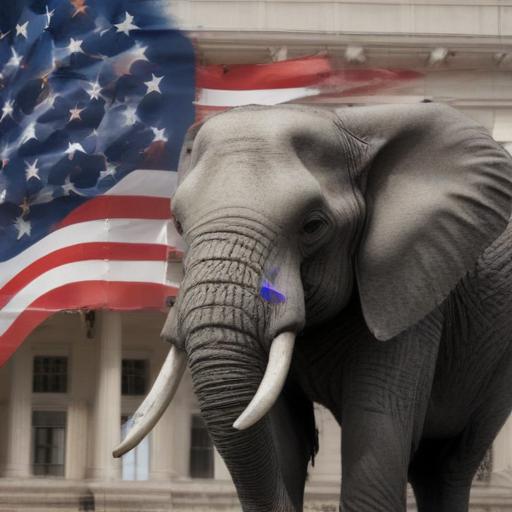The House Budget Committee has approved a significant tax and immigration package that is a crucial part of President Donald Trump’s agenda as of late Sunday. This development followed strong opposition from hard-line conservatives regarding spending issues. House Speaker Mike Johnson (R-Louisiana) now has a brief timeframe to address concerns from both far-right and moderate factions before the House Rules Committee convenes to finalize the changes to the proposal, aptly named the “One Big Beautiful Bill.”
The challenge lies in navigating disputes over federal spending, which have historically been contentious among House Republicans. Last term, Johnson often relied on Democrats to secure government funding, a situation that contributed to the ousting of his predecessor, Kevin McCarthy (R-California). Despite the intent to align lawmakers under Trump’s leadership, the hefty price tag of the proposed bill is putting that unity to the test.
Four fiscal conservatives previously blocked the bill, echoing their discontent with both Johnson and Trump. They argued that the bill could exacerbate annual budget deficits, joining Democrats to prevent its advance to the House floor. A subsequent change in the voting pattern permitted the bill to be reconsidered and ultimately passed.
During the weekend negotiations, Johnson and GOP leaders sought to sway the holdouts, asserting their commitment to deliver impactful legislation for the American people promptly. Key demands from dissenters included implementing deeper spending cuts, particularly targeting Medicaid.
Johnson is aiming for the measure to reach the House floor within the week, expressing confidence in achieving this goal by Memorial Day. He has emphasized that this bill represents a crucial fulfillment of the mandate given by voters in the last election, stating its significance and his determination not to fail.
The extensive package not only aims to extend Trump’s tax cuts from 2017, set to expire in December, but also promises to eliminate taxes on tips, overtime wages, and auto-loan interest. Additionally, it includes substantial investments in immigration enforcement, defense, and other priorities from the White House. This ambitious plan is projected to add at least $2.5 trillion to the nation’s existing $36.2 trillion debt over the next decade, a prospect that troubles many of the hard-line conservatives.
The current dynamics illustrate a challenging internal conflict within the Republican Party, as both hard-line and moderate members express apprehension about potential compromises on spending cuts which could affect crucial social safety programs. Notably, six lawmakers from swing districts are advocating for an increase in the cap on deductions for state and local taxes, a controversial negotiation point that could slow down the legislative process and cause further discord among fiscal conservatives.
Despite the hurdles, it’s indicated that negotiations are making headway, with Johnson and fiscal conservatives expressing optimism about finding a compromise on pressing issues like work requirements for Medicaid. This proactive approach bodes well for potential progress on a bill that represents a pivotal moment for Trump’s second-term agenda, highlighting both the challenges and determination of current House leadership to push forward transformative legislation.
